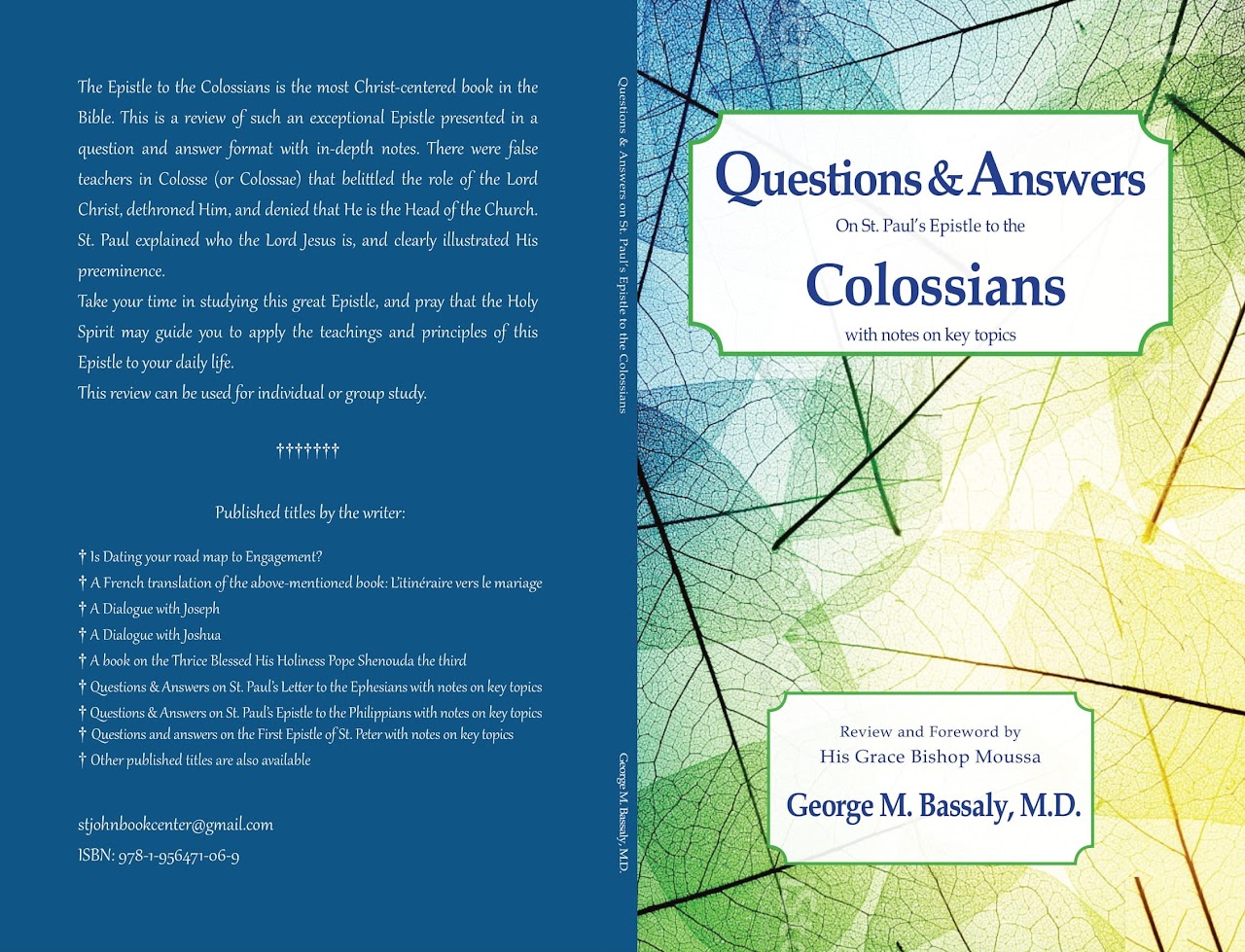
Author: Dr. George M. Bassaly, M.D.
Language: English
Price: $13.99
To inquire about purchase, please contact us.
Please enjoy an excerpt from the book:
“To be spiritually minded is life and peace.”
“Because the carnal mind is enmity against God...”
“...having their understanding darkened, being alienated from the life of God, because of the ignorance that is in them, because of the blindness of their heart.” (Ephesians 4:18)
To be carnally minded is to esteem, desire, delight in, and indulge the visible and temporal, in preference to the spiritual and eternal things. It includes setting our affection on things on earth, instead of on things above. On the other hand, we must seek our joy in the Creator, where true joy can be found.
St. John Chrysostom commented: “Here he goes to show that He reconciled even those who were unworthy of reconciliation. By saying that they were under the power of darkness, he shows the calamity in which they were. He adds, ‘And you that were alienated,’ so that, though it appears to be the same thing, yet it is not so. For it is not the same to deliver from evils one who suffered by necessity, and one who endured them by his own will. The former is worthy of pity, but the latter of blame.
Nevertheless, he says: You who, not unwillingly nor by compulsion, but with your own wills and desires, sprang away from Him — and are thus unworthy — He has reconciled. He does not simply say, ‘were at enmity,’ but ‘were alienated,’ which denotes great estrangement, not only without reconciliation, but even without the expectation of returning. ‘And enemies in your mind,’ he says — thus, the alienation was not in intent only. And what else? ‘In your wicked works’ also. You were both enemies, he says, and you did the works of enemies.”
Answer Q7: In the body of His flesh through death.
The aim is: to present you holy, and blameless, and above reproach in His sight.
It is worth noting that the apostle’s use of the double expression (“body” and “flesh”) was to show explicitly that the Lord Jesus took flesh and became man. The material body of Christ — the Incarnation — was made the instrument...
— Page 36